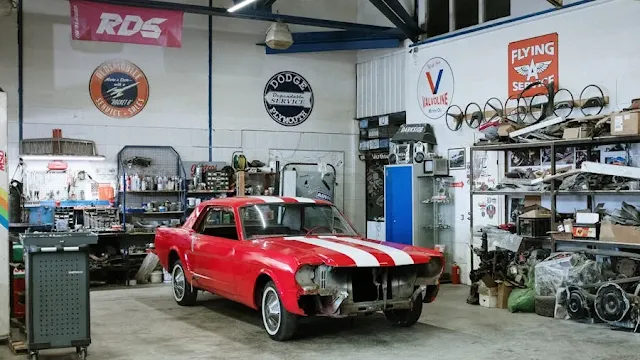When buying a car, whether new or used, one of the critical decisions you'll face is whether to purchase a car warranty. It's a dilemma that can cause quite a bit of hesitation. Is investing in a car warranty a prudent choice or just an unnecessary expense? Let's delve into what a car warranty covers, the pros and cons, and under what circumstances it might actually be a good idea.
When your vehicle's engine or transmission encounters problems, an extended car warranty can cover the repair costs. As your car's original manufacturer warranty nears its end, you might be weighing the benefits of purchasing an extended warranty.
You can choose to buy this warranty from the car's manufacturer or a third-party provider, with several options available to tailor coverage to your specific concerns.
While extended car warranties or vehicle service contracts offer considerable advantages, deciding whether to purchase one can be complex. Not every car owner will find an extended warranty beneficial. For instance, some plans can be quite costly, or you may not intend to keep your car for much longer. In such scenarios, investing in an extended warranty might not be the best decision.
What is a Car Warranty?
A car warranty, often offered by manufacturers or as an extended option from dealerships, is essentially a promise to cover certain repairs and maintenance for a specific period. Warranties are meant to provide peace of mind by reducing unexpected repair costs, but terms and coverage can vary significantly.
What Does an Extended Car Warranty Cover?
An extended car warranty typically covers critical components of your vehicle, such as the engine, transmission, gaskets, and axles. This warranty functions similarly to an insurance policy, where you pay a predetermined deductible for repairs to these key parts, provided your vehicle adheres to the necessary maintenance schedule and repairs are conducted at an approved auto shop.
Many extended warranties also offer roadside assistance, which can be invaluable. This service may include towing your vehicle to a repair shop, delivering fuel if you run out, or helping with flat tires and dead batteries.
Additionally, if you encounter car troubles during a trip, an extended warranty can be particularly beneficial. It might cover the costs of a rental car or compensate for nonrefundable hotel reservations if your journey is unexpectedly halted. For those who travel often, choosing a warranty that includes trip interruption coverage can be highly advantageous.
However, it's important to note that extended car warranties do not cover routine maintenance or damage from wear and tear. Also, failing to maintain your vehicle according to the prescribed schedule can void the warranty. If you're not committed to following the maintenance plan, an extended warranty may not be worth the investment.
Types of Car Warranties
- Manufacturer’s Warranty: Usually covers most components and systems due to defects in materials or workmanship. Typically, this warranty comes with new cars and can range from 3 to 7 years.
- Extended Warranty: Can be purchased to extend the coverage of a manufacturer’s warranty, often covering additional parts and potential problems post the initial warranty period.
- Powertrain Warranty: Covers the car's engine, transmission, and other integral components, usually for longer than the bumper-to-bumper coverage provided by a manufacturer's warranty.
Pros of Car Warranties
- Reduced Repair Costs: The most significant advantage is cost management. Repairs, especially major ones, can be expensive. A warranty can significantly offset these costs during the warranty period.
- Resale Value: A transferable warranty can increase a vehicle’s resale value. Buyers are often willing to pay more for a car that comes with guaranteed coverage.
- Peace of Mind: Knowing that major repairs will be covered can make owning a car less stressful, particularly for those who rely heavily on their vehicle for daily activities.
Cons of Car Warranties
- Cost: Warranties are not free and can be quite costly. The upfront cost of an extended warranty might not seem justifiable, especially if many of the covered repairs are unlikely to occur.
- Coverage Limitations: Warranties come with fine print. Some repairs may not be covered, or there may be specific conditions under which the warranty is valid. Understanding these details is crucial.
- Unnecessary for Reliable Cars: For many highly reliable vehicles, the likelihood of needing extensive repairs within the warranty period is low, which could make the warranty an unnecessary expense.
When is a Car Warranty a Good Idea?
- For High-Maintenance Vehicles: If you own a car known for its high maintenance costs or frequent need for repairs, a car warranty could save you money in the long run.
- If You Plan to Keep the Car Long-Term: If you intend to keep your vehicle well beyond the term of the manufacturer's warranty, an extended warranty might be worth considering to cover future major repairs.
- If You Prefer Budget Predictability: For those who prefer predictable monthly expenses, a warranty can be a good way to avoid unexpected repair bills.
A car warranty can indeed be a good idea under the right circumstances. It offers financial protection and peace of mind, but it's essential to assess your needs, consider the reliability of your vehicle, and carefully read the terms of the warranty to make sure it’s worth the investment. Like any insurance product, a car warranty is about managing risk. If the peace of mind and potential savings align with your financial and personal priorities, then a car warranty might just be a smart choice.





No comments:
Post a Comment